The COVID-19 crisis has eroded the rule of law environment around the world, writes Ted Piccone. In response, societies are beginning to acknowledge and tackle the deep structural inequities of current economic and rule of law conditions, he explains. This piece was originally published by Equal Times.
Since the global pandemic struck just over a year ago, evidence strongly points toward a deterioration of already worrisome trends regarding the rule of law worldwide. This matters because the rule of law is the essential foundation for ensuring accountability of both government and private actors, just laws that protect fundamental rights, open government, and accessible justice.
At the intersection of these twin crises of public health and rule of law stand four main concerns: constraints on government powers, fundamental rights and discrimination, corruption, and access to justice.
In each of these areas, there is cause for alarm. For example, the COVID-19 pandemic seriously risks further erosion of constraints on government powers, as leaders with an authoritarian bent amass new powers through emergency measures, and courts, legislatures, and other institutional and citizen checks are hampered in carrying out their constitutional duties and rights. New measures criminalizing the spreading of misinformation about the virus or censoring reports about government missteps have been used to silence or attack journalists and opposition critics. Striking evidence has emerged of discriminatory enforcement of lockdown measures and curfews on the basis of ethnicity, race, religion, legal status, and gender identity.
Corruption in the health sector has worsened as governments rush supplies and resources to those in need, short-cutting procedures designed to prevent waste and fraud. Moreover, the severe economic fallout of the pandemic is generating even more justice needs, particularly among poor and marginalized communities, many of whom lack legal identity, housing, or formal employment and therefore may not be able to access emergency assistance. Meanwhile, chronically under-resourced justice institutions, many of them operating at reduced capacity due to the pandemic, risk falling even further behind.
According to recent analysis by Freedom House and the University of Gothenberg’s Varieties of Democracy project, freedoms of expression, association and the media have all suffered in the last year. A particularly pernicious inequity has arisen against health workers who already face dire risks by virtue of their occupations.
For workers around the world, this deterioration in the rule of law raises obvious concerns. A stable rule of law system creates an environment by which their rights to organize and bargain collectively are protected; it shields them from discrimination; it provides a regulatory framework for workplace safety; and provides mechanisms for resolving workplace disputes and harms. Research also shows that rule of law correlates positively to economic growth, improved health outcomes, less inequality, and higher levels of education.
The state of the rule of law before Covid-19
Unfortunately, the global pandemic arrived at a time of a marked but steady slide in respect for the rule of law around the world. As documented in the World Justice Project (WJP) Rule of Law Index 2020 — which measures the rule of law worldwide based on in-country household and expert surveys — more countries’ rule of law scores declined than improved for the third year in a row. We see this trend in established democracies as well as in less free states and in every region of the world. The persistent decline is particularly pronounced in the areas of government accountability, fundamental rights, and corruption. For example, more countries have declined in their fundamental rights score than any other rule of law factor both over the previous year and the previous five years surveyed.
In the area of labor rights, there is a more mixed picture.
The questions covered in the survey include freedom of association and the right to collective bargaining, the absence of discrimination with respect to employment, and freedom from forced labor and child labor (Index subfactor 4.8).
Over the most recent five-year period of data collected by WJP, the number of countries that improved or decreased on this sub-factor is about the same, with 53% increasing and 42% decreasing, and around 5% not seeing significant changes. When analyzed on a population-weighted basis, the improving group of 54 countries represents 64% of the world’s population, while the declining group of 43 countries represents only 23% of the world’s population. In other words, during that five-year period, labor rights generally improved for more people around the globe.
A closer look at the numbers underscores a mixed picture of both progress and regression. On the positive side, historically weaker rule of law countries have seen significant improvements in their labor rights score. However, many of these countries have labor rights scores that fall far below the global average (e.g. Tanzania, Afghanistan, Egypt), indicating that while some improvements have been seen over the last few years, countries are still struggling to adequately protect and uphold labor rights. On the other hand, some weaker rule of law countries have also seen large declines on labor rights (e.g. Belize, Brazil, Turkey), proving again that there is no clear, one-size-fits-all picture regarding labor rights and its correlation to rule of law performance more broadly.
Some signs of hope
Trade unions, NGOs, journalists, and citizens have responded bravely to the unfolding pandemic crisis through both direct humanitarian assistance and other services to victims. WJP’s World Justice Challenge 2021, a global competition to recognize innovative projects responding to the rule of law challenges posed by the pandemic, has identified a number of inspiring examples of direct support to workers affected by the crisis.
In Kenya, the Dhobi Women Network launched the Inua Mama Fua project to provide food, personal protective equipment (PPE), psychosocial and access to justice services for women domestic workers in Nairobi who are currently unable to fend for themselves due to the ongoing pandemic that saw their employers send them home. The Guatemalan Women’s Association in Spain pursued strategic litigation and other legal tools to protect migrant workers’ ability to work and receive social benefits during the pandemic. In Nepal, in response to the heightened vulnerabilities of migrant labourers, People Forum provided free legal aid to victims, prepared policy papers, and recommended repatriation and reintegration of returning migrant workers.
In sum, the COVID-19 crisis has eroded the rule of law environment around the world. In response, societies are beginning to acknowledge and tackle the deep structural inequities of current economic and rule of law conditions. The next WJP Rule of Law Index, to be released by October 2021, will provide additional data to help inform unions, activists, governments and the private sector on what priorities need attention and resources as we build a more just recovery from the pandemic.
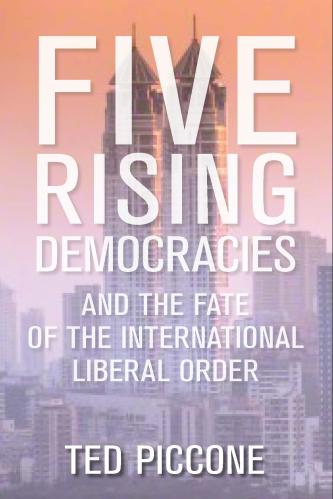
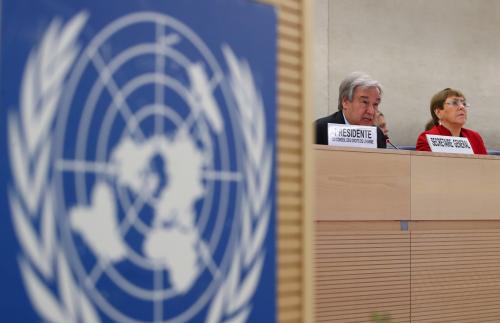
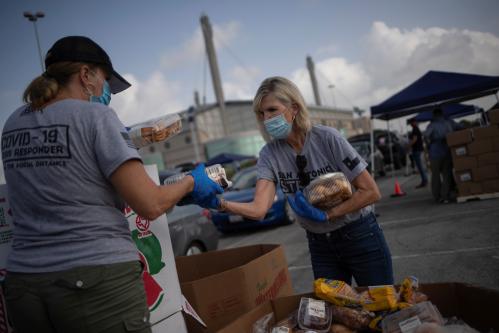
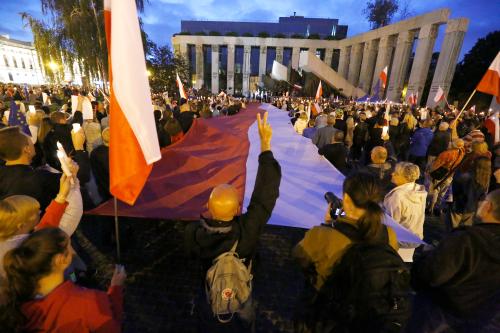


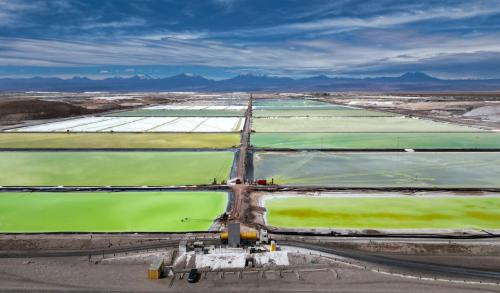

Commentary
COVID-19 has worsened a shaky rule of law environment
April 15, 2021